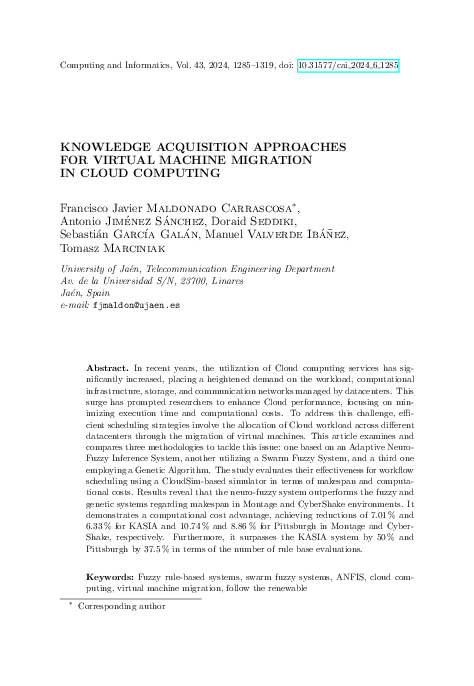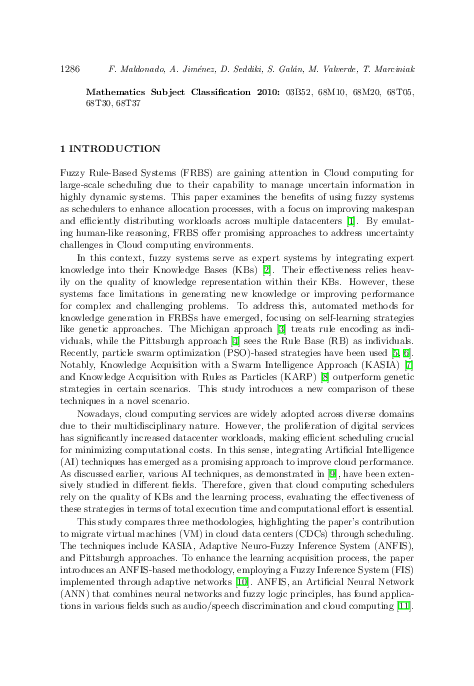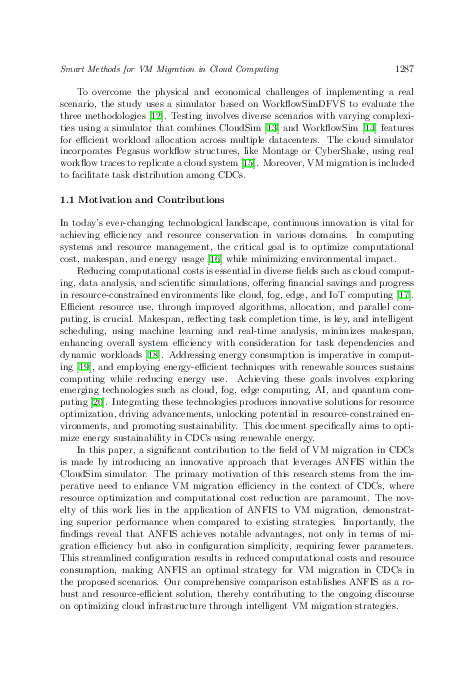Knowledge Acquisition Approaches for Virtual Machine Migration in Cloud Computing
keywords: Fuzzy rule-based systems, swarm fuzzy systems, ANFIS, cloud computing, virtual machine migration, follow the renewable
In recent years, the utilization of Cloud computing services has significantly increased, placing a heightened demand on the workload, computational infrastructure, storage, and communication networks managed by datacenters. This surge has prompted researchers to enhance Cloud performance, focusing on minimizing execution time and computational costs. To address this challenge, efficient scheduling strategies involve the allocation of Cloud workload across different datacenters through the migration of virtual machines. This article examines and compares three methodologies to tackle this issue: one based on an Adaptive Neuro-Fuzzy Inference System, another utilizing a Swarm Fuzzy System, and a third one employing a Genetic Algorithm. The study evaluates their effectiveness for workflow scheduling using a CloudSim-based simulator in terms of makespan and computational costs. Results reveal that the neuro-fuzzy system outperforms the fuzzy and genetic systems regarding makespan in Montage and CyberShake environments. It demonstrates a computational cost advantage, achieving reductions of 7.01 % and 6.33 % for KASIA and 10.74 % and 8.86 % for Pittsburgh in Montage and CyberShake, respectively. Furthermore, it surpasses the KASIA system by 50 % and Pittsburgh by 37.5 % in terms of the number of rule base evaluations.
mathematics subject classification 2000: 03B52, 68M10, 68M20, 68T05, 68T30, 68T37
reference: Vol. 43, 2024, No. 6, pp. 1285–1319


